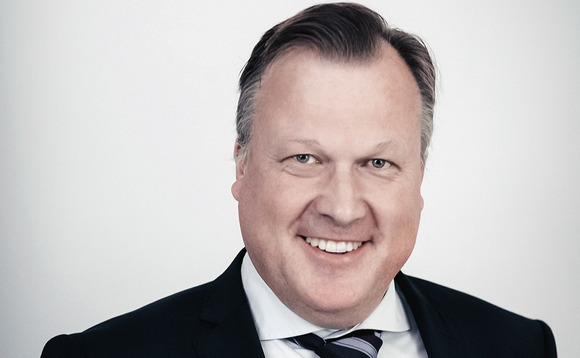
LP Profile: Argentum

Argentum has increased its assets under management tenfold since CEO Joachim HУИegh-Krohn joined in 2006. Oscar Geen catches up with him to discuss the firm's evolution and his views on the current state of the market
Argentum was founded in 2001 by the Norwegian Ministry of Trade and Industry to invest government funds in private equity. The LP is still owned by the ministry, but now manages external capital as well through privately managed accounts. Around one third of the capital it invests comes from private investors.
When CEO Joachim Høegh-Krohn joined in 2006, the firm was only making primary investments, and most of those were in Norwegian private equity funds, with some exposure to managers from other Nordic funds. Today the focus is northern Europe, which includes all the Nordic nations, the UK, Benelux and DACH, and Argentum has selectively invested in the US and Spain.
"We are not thinking in geographical terms any more," says Høegh-Krohn. "We focus on small- and mid-cap funds and we want to find the best ones. This has meant investing mainly in northern Europe, but we also have managers in Spain, and in the future we could look at France and Italy."
Although the market opportunity and macroeconomic factors are important to Argentum, it is more concerned with manager quality and capability. Høegh-Krohn illustrates this with the example of the UK. "The UK is a very developed and challenging market to operate in," he says. "The mispricing is gone and the market is very efficient. But the quality of managers such as Sovereign Capital, Livingbridge and Inflexion is overriding that." Argentum has committed to the most recent funds of all three GPs.
Quality check
By quality, Høegh-Krohn means operational improvement capability. "That is the key thing we are looking at," he says. "We look at track record; what they have done and what they are planning to do. We carry out interviews with people on the investment team, and with management teams that have worked with them, and try to figure out what improvement is really attributable to them, adjusting for market conditions."
One indication that a GP lacks quality in this area is that their proprietary deals underperform. "One fund we observed had worse performance on the deals they sourced off market than the ones they won in auctions, and the explanation was that their due diligence was not strong enough," Høegh-Krohn says. This meant that, even though they got a better price for the proprietary deals, their value creation function was not sufficient to take full advantage.
Argentum is also concerned about its managers' ESG policies, but currently only screens negatively. "There is a standard they have to meet and if they pass it we proceed to commercial due diligence," says Høegh-Krohn. "We are not currently measuring impact or comparing across our portfolio." However, it does send out an annual ESG survey and compiles the results, with the most recent edition showing that 95% of its GPs had ESG policies, up from 90% last year.
Second chances
Once managers have passed all these tests, Argentum is a faithful partner and will not necessarily divest due to poor performance. "We will not reject you just because it did not work out as you hoped, but of course that will trigger us to take an extra look at everything you do," says Høegh-Krohn. "Usually, we still support the next fund but if that also has mishaps, then we will take an even closer look."
The theme of holistic relationship management runs through all of Høegh-Krohn's comments. On the topic of GPs selling minority stakes, he says: "We are very cautious about that. In principle, LPs should be LPs and GPs should be GPs. We believe active team members should own 100% of the GP because we do not like passive investors in the GP." However, he says: "You have to be practical and if they want to sell we have to handle it and consider it in the context of the broader relationship."
GP stake sales are becoming more common across the market, boosted by pools of capital raised specifically to target them. Dyal Capital, Goldman Sachs and Blackstone are currently in the market with vehicles targeting more than $17bn combined to target GPs globally that invest in the full spectrum of strategies from VC to large-cap buyout. Speaking about this type of process in general, Høegh-Krohn says: "We do not think it is a good idea, but we are not necessarily against it. After all, if they want to sell, then someone will buy it."
Key team members
Joachim Høegh-Krohn joined Argentum as CEO in 2006. Prior to that, he was head of DNB Asset Management. He has also been investment director and headed up several business units at Vital Insurance.
Harald-Ingve Flagtvedt joined Argentum in 2005 as CFO. Prior to joining, he held financial advisory positions with Deloitte Corporate Finance.
Vidar Moe joined Argentum as head of investor relations and sales in 2018. Prior to joining Argentum, he worked within asset management advisory at Gabler Investments, SEB and Storebrand.
Espen Langeland joined Argentum in 2003 and is now senior investment director. Langeland leads Argentum's primary investment programme. Prior to joining Argentum, he worked in M&A at HSBC.
Latest News
Stonehage Fleming raises USD 130m for largest fund to date, eyes 2024 programme
Sponsor acquired the public software group in July 2017 via the same-year vintage Partners Group Global Value 2017
Stonehage Fleming raises USD 130m for largest fund to date, eyes 2024 programme
Czech Republic-headquartered family office is targeting DACH and CEE region deals
Stonehage Fleming raises USD 130m for largest fund to date, eyes 2024 programme
Ex-Rocket Internet leader Bettina Curtze joins Swiss VC firm as partner and CFO
Stonehage Fleming raises USD 130m for largest fund to date, eyes 2024 programme
Estonia-registered VC could bolster LP base with fresh capital from funds-of-funds or pension funds









